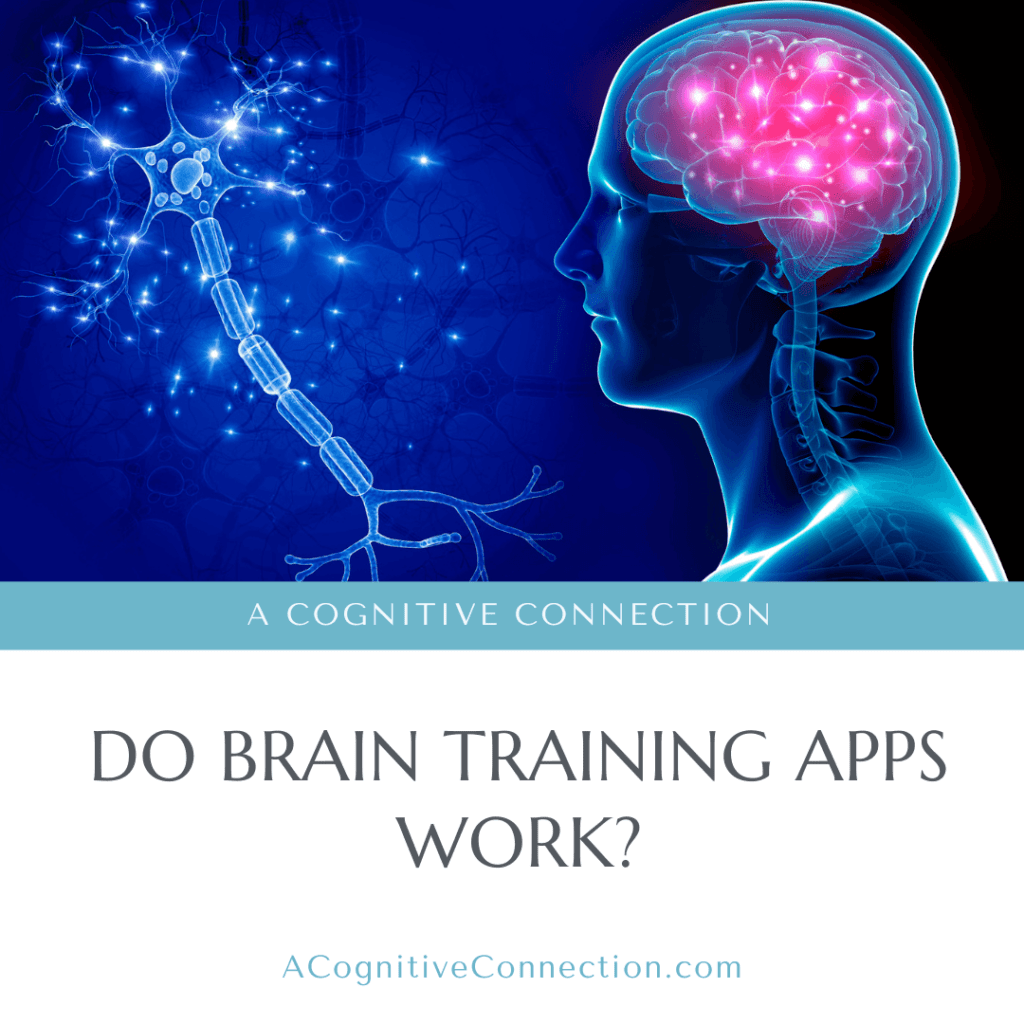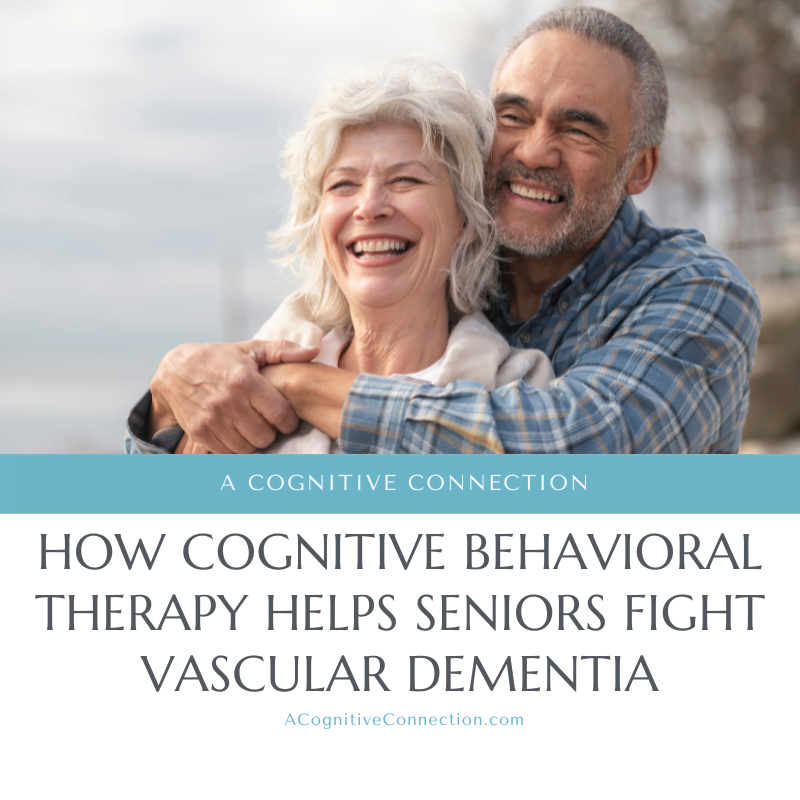You may have heard all the buzz that brain training apps like Luminosity, EpicMem++, Elevate among others can help improve cognitive functioning. These game applications claim to improve memory, IQ, general executive functioning skills. At the surface these claims seem appealing. Who wouldn’t like to play video games while improving your overall cognitive sharpness?
At A Cognitive Connection, we serve individuals seeking to understand the “why” behind their actions and behaviors with loving support. In this blog post we will be addressing whether brain training apps really work!

Brain Training Apps Claims
The top ten brain training apps on the market claim to improve cognitive ability in the following areas:
- Memory: The ability to recall memories both short and long-term.
- Attention: The ability to concentrate on a task for an extended period.
- Speed: The ability to process information faster.
- Flexibility: The ability to shift quickly between tasks or thoughts.
- Problem-solving: The ability to solve problems via strategic thinking, and planning.
- Language Skills: Improve vocabulary, reading, writing, and communication skills.
- Spatial and Visual Skills: Improve spatial reasoning, map reading, and understanding of spatial relationships among objects.
- Mathematical Skills: Some games can enhance numerical skills and the ability to perform quick calculations.
Each application may have a particular skill they emphasize a particular outcome. But what do other researchers in the field have to say about it?
Debunking Brain Training App Cognitive Benefits
There are a number of reasons why brain training apps have proven ineffective compared to other methods like learning new languages, playing music, and exercise. Learn more about the scientific research of brain training apps and its relative ineffectiveness in real-world applications below.
Doesn’t Transfer to Real Life
The effectiveness of brain training apps is up for debate. Some research suggests it can improve cognitive skills they’re designed for, but the evidence suggests that the skills learned in the app do not translate into real life.
The games you play on the application might help improve your ability to respond to challenges within the game faster, but it probably won’t increase your ability to multitask on the job, for example.
“Many of the brain training companies essentially have no evidence in support of their particular programs having those sorts of real-world benefits,”
–Daniel Simons (experimental psychologist at University of Illinois)

Self-Sponsored Studies
Another reason to be skeptical whether brain training apps actually help the methodology of their research. When doing an experiment, volunteers are asked questions after using the application for a period of time that calls for self-reflection. The questions asked for the study suggest what is known as “experimental bias.” Because the participants know that the study is aimed at improving certain cognitive abilities, their answers are likely to be biased toward that confirmation bias.
“In most of the brain training studies, people know what it is that they’re practicing, and they have predictions about what will improve and what won’t. And as a result of that, they might report improving on those things that they think should improve.”
–Daniel Simons (experimental psychologist at University of Illinois)
Other Ways to Improve Cognitive Functioning
Even though brain training apps may appear to improve your ability to complete tasks within the game – there is little evidence that it actually improves it. Other, more reliable studies suggest that exercise, meditation, socialization, and engaging in hobbies you’re passionate about show improvements in overall cognitive abilities.
“Any mentally effortful new experience will produce changes in the neural systems involved in these novel experiences. That includes learning a new language, mastering a new musical instrument or learning a new technique or piece, acquiring a new physical skill or craft or even navigating a new environment. Once an activity involves learning it will promote neuroplasticity (new connections) in the brain, which is a good thing,”
– Sabina Brennan (Neuroscientist and Author of 100 Days to Younger Brain)
Wrapping Up: A Cognitive Connection
There is no easy way to cheat the effort required to train your brain to its full potential. For the best results you should partner with a cognitive therapy therapist who can help you find the best exercises to help you improve areas including concentration, planning, attention, memory and more. Schedule a free consultation today to find out how we can help you. We would love to develop a personalized cognitive therapy plan for you!


